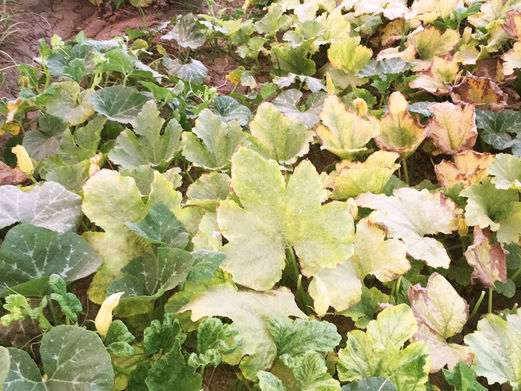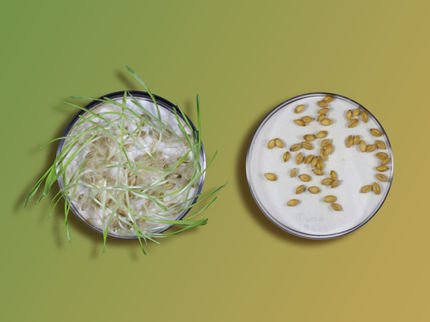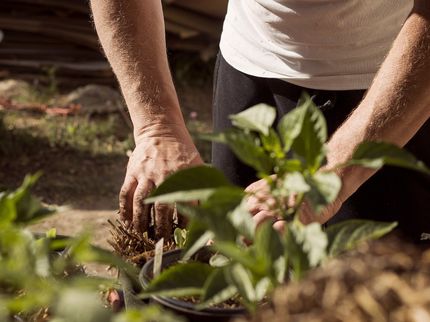Going door-to-door to save Egypt’s pumpkins and address global food insecurity
Small farmers, international scientific team join to help agriculture adapt to climate change
Advertisement
How does one help save an iconic, nutritious Egyptian crop that will help meet the food security challenges resulting from climate change? An international team of researchers, led by the University of Massachusetts Amherst, discovered that the best way to start is to drive throughout central and northeastern Egypt, knock on the doors of small farmers, and ask for a handful of their pumpkin seeds.

One of the pumpkin fields Mady visited in Egypt.
Emad Mady
The results of that labor, announced recently in Molecular Biology Reports, show that the team has successfully traced the biochemical and molecular variations of nine different pumpkin varieties grown in several climatic zones of central and northeastern Egypt. The research is a crucial first step in identifying which varieties of pumpkins are ideal for conservation and varietal improvement to meet the challenges in achieving food security in a changing world.
In the United States, we typically think of pumpkins only in the fall, when they appear in pies, cookies and lattes. But in much of the world, pumpkins are a dietary staple and are consumed year-round. Pumpkins are an especially nutritious source of fat, protein, vitamins A, C and E and various disease-fighting compounds that help prevent everything from cancer to reproductive malfunctions. But, as Emad Mady, a graduate student in environmental conservation at UMass Amherst and the paper’s lead author, notes, not all pumpkins are the same.
“I first noticed this in Egypt,” Mady says. Small Egyptian farmers have been growing the pumpkins for generations, patiently breeding them to thrive in the local conditions, which can vary widely across the country. However, large agricultural corporations have begun introducing pumpkin seeds to Egypt that are not native to the local conditions, threatening the survival of the traditional varieties. Moreover, because these newer commercial seeds have not been bred to the local conditions, they can actually exacerbate the problems of food insecurity
“Our goal,” says Mady, “is to determine which pumpkin cultivars are best suited for the local environments, and then use these cultivars as the basis for furthering pumpkin production in Egyptian agriculture.”
To do so, Mady traveled across the country, visiting with small farmers, walking through their fields and collecting seeds. He then collaborated with colleagues in Egypt at Al-Azhar University and the Agricultural Genetic Engineering Research Institute who ran a series of chemical and molecular tests on the seeds before they could degrade. These tests helped identify the nutritional value of specific local varieties, including their fat, moisture, protein, fiber, mineral and carbohydrate content, as well as the genetic markers that function as a unique fingerprint for each specific variety.
Once Mady’s Egyptian colleagues completed their chemical and molecular work, he and his team at UMass Amherst and Springfield Technical Community College in the U.S. analyzed and categorize the findings. What they discovered is that there is significant variation in the nutritional value of the samples Mady collected, and that these varieties can be accurately identified using genetic analyses. Altogether, this collaboration of small farmers and international researchers has shown that local Egyptian pumpkins can be used to help develop future varieties that are highly nutritious and well adapted to Egypt’s specific environment.
“One of the biggest problems in meeting the world’s food security challenges,” says Timothy Randhir, professor of environmental conservation at UMass Amherst and one of the study’s co-authors, “is an international collaboration that can integrate local knowledge and resources to bring about positive change. This research is a model of how the small farming community and the scientific community can work together to address these pressing needs.”





























































